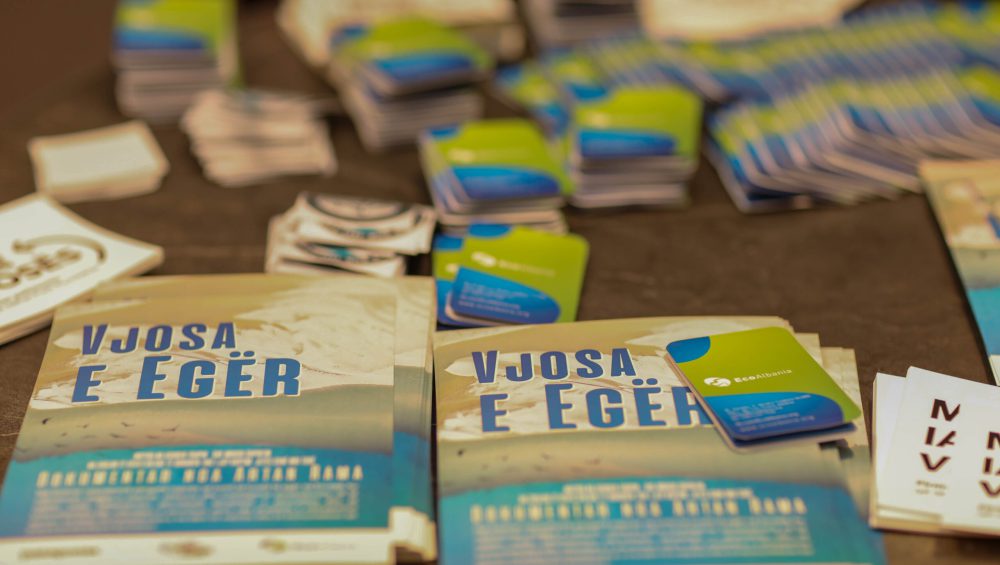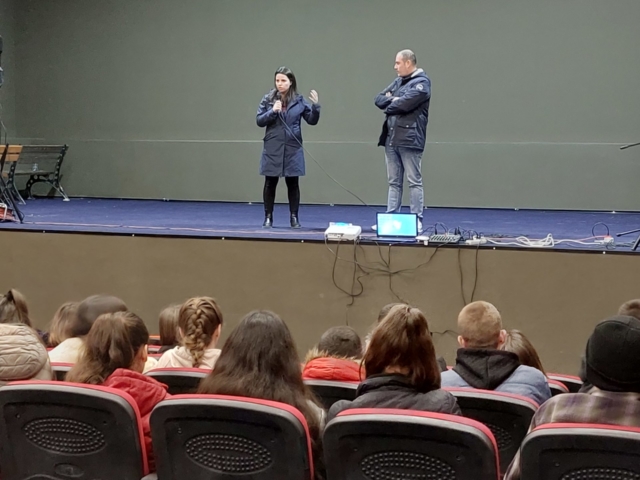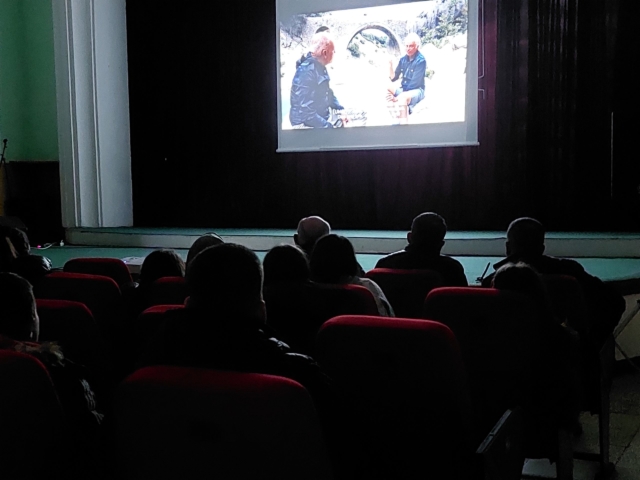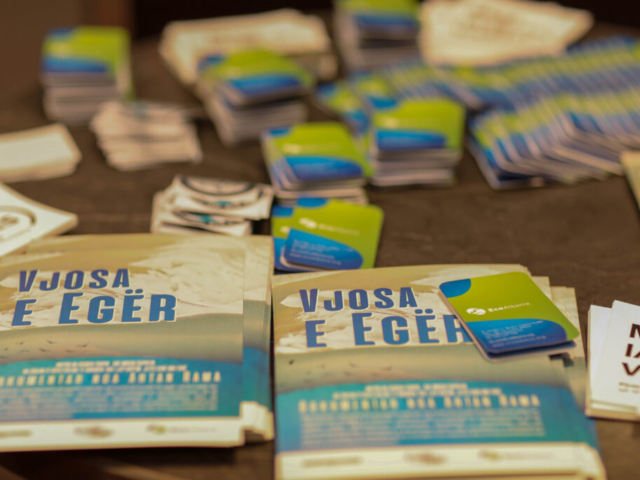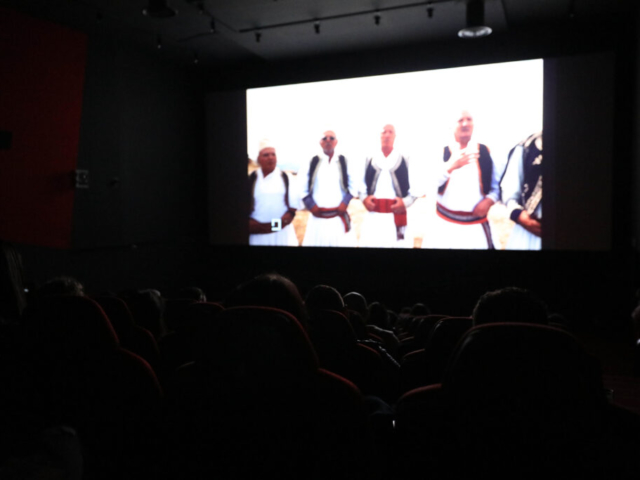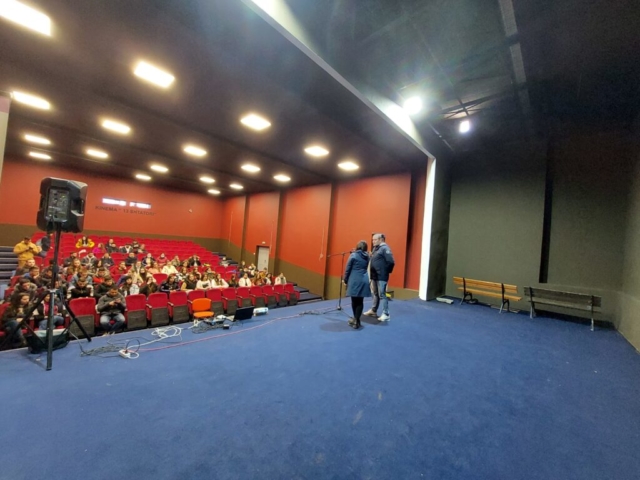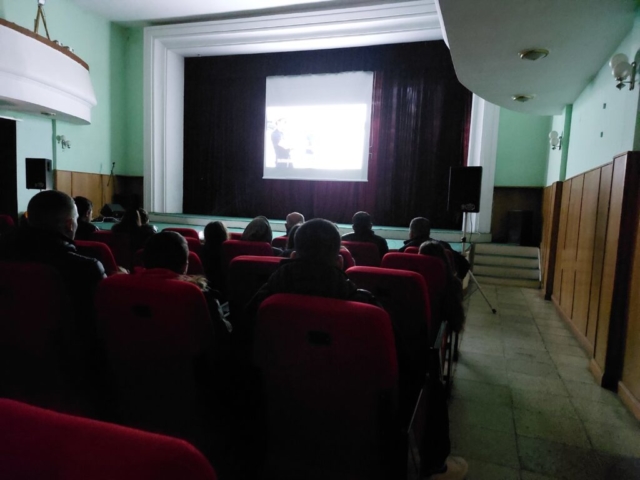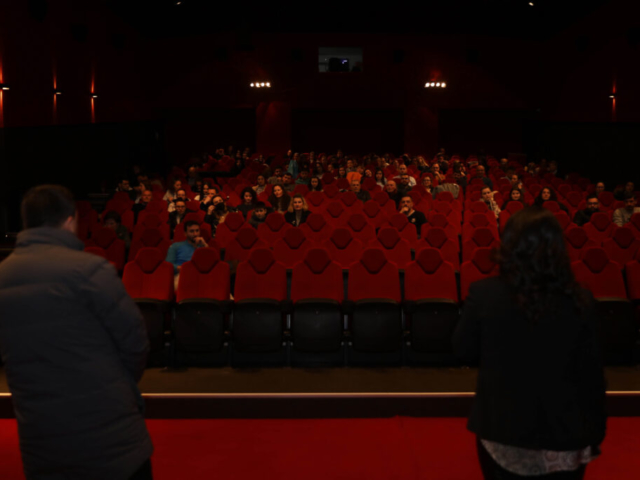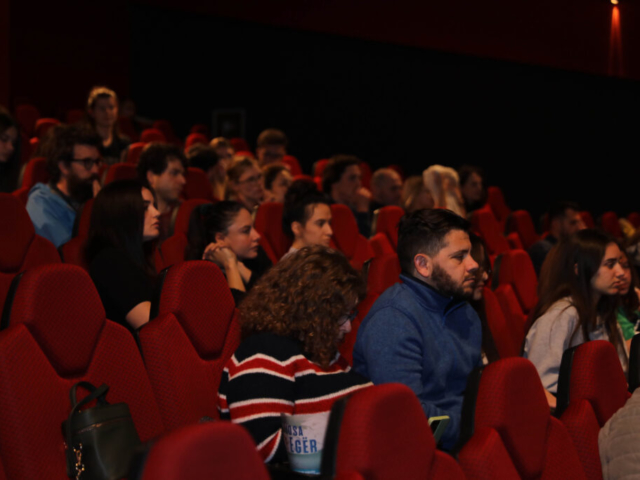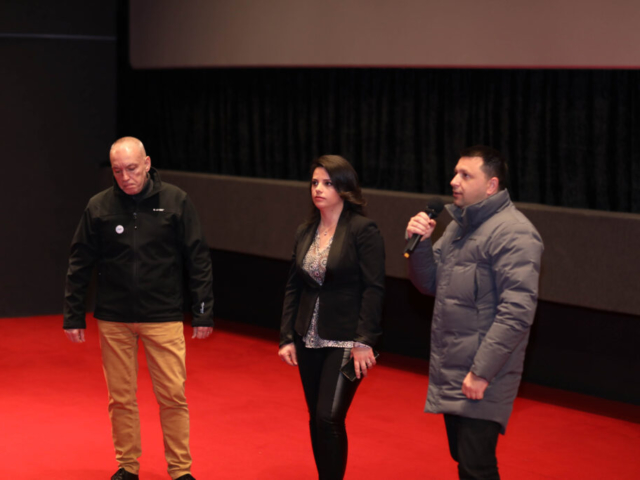On February 18th and 23rd, EcoAlbania organized the screening events to present the documentary Wild Vjosa (Vjosa e Egër). The events were organized in Përmet in collaboration with Cevsi Albania and in Tepelenë with with the support of the Municipality of Tepelenë. While the Tirana screening was organized on February 23rd and will be followed by the last screening event in Vlora on March 17th.
In the film, investigative journalist Artan Rama explores the cultural, geological and environmental value of the Vjosa by spending time with international scientists studying its unique biodiversity and the people who interact with the river every day.
Audiences in the Cultural Palace in Tepelena and the City Cinema in Përmet enjoyed the dramatic aerial shots and candid interviews of Rama’s ode to Europe’s last wild river, followed by question-and-answer sessions with Besjana Guri of EcoAlbania. Particularly the high school children in the audiences spoke their opinions about what it’s like to grow up in the river valley, and what the future of the river might look like if it becomes a National Park, on the one hand, or if plans for hydropower develop go ahead and destroy this unique ecosystem, on the other.
While in Tirana the audience at the Millennium Cinema was diverse, starting from citizens, activists, outdoor sports practicians, NGO-s and journalist until representatives of the Government. The question-and-answer sessions with the producer Artan Rama, Olsi Nika and Besjana Guri from the EcoAlbania, was very interactive.
They explained to the participants the current situation of Vjosa River, and why the National Park is the best protection status that would ensure the full protection of the Vjosa river, including its tributaries. And from those who are still skeptical whether or not Vjosa should be declared a National Park seeing the construction of hydropower plants as a way to ensure economic growth, Olsi Nika from EcoAlbania answered, that “Destroying the last wild river in Europe with the justification of economic growth is like thinking of destroying Notre-Dame de Paris and building a shopping mall because it will bring in more revenue”. “Notre-Dame de Paris is a cultural heritage just as Vjosa River is a natural heritage, the last in Europe of its kind”, he added.
Wild Vjosa (Vjosa e Egër) continues its national tour with the final screening at the Cultural Palace in Vlora on Thursday, 17 March at 17:00, where all the interested citizens from Vlora are invited to attend.


